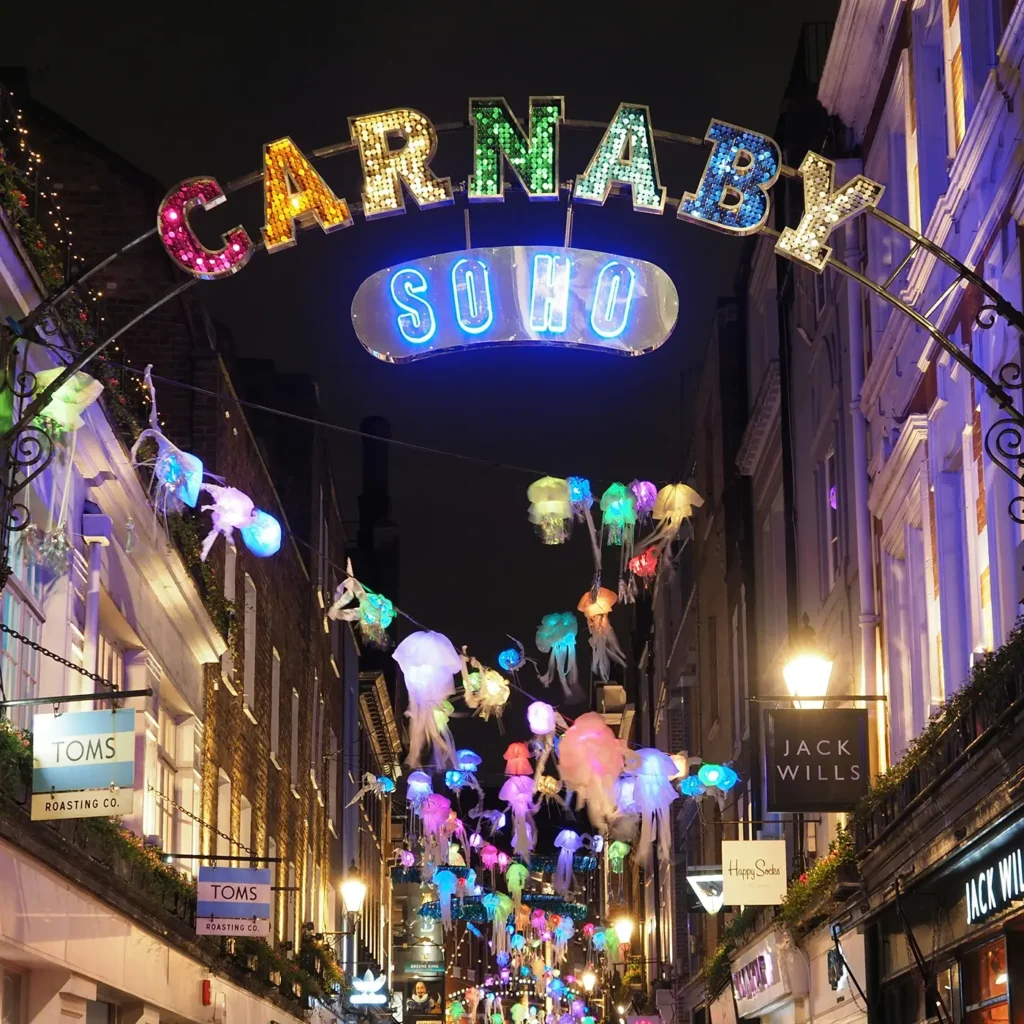Ever since it was founded, Soho has been a high-energy hub in the heart of London, boasting a dense pocket of restaurants, theatres, late-night haunts, and curiosity shops.
Although certainly competitive, Soho’s iconic status makes it one of the most promising neighbourhoods in which to open a new hospitality business.
Making it in Soho may not be easy, but with the right combination of local savvy, planning, and customer experience, you can still thrive as a new face and leave your mark on the area.
Here are four practical and up-to-date ways you can succeed as a new operator.
Research Location, Licensing, and Neighbourhood Relations
Soho sits within the City of Westminster, and this comes with a unique (and confusing!) planning and licensing environment.
The fact that Soho is known for its tourism and nightlife is a bit of a double-edged sword for anyone looking to set up shop. On one hand, the location’s prestige will bring in plenty of foot traffic and get your brand associated with well-known names that have been part of the community for decades. On the other hand, residents are vocal about issues like congestion, noise, and litter, and applications to open a new business won’t just be rubber-stamped.
Westminster’s licensing policy and community pressure groups can make or break your application, so it’s crucial to carry out plenty of preparation before taking any practical steps towards opening your business.
Some important best practices include:
- Engaging early with The Soho Society and other neighbourhood groups to build transparency and goodwill with the local community.
- Researching historic licensing cases for businesses similar to yours, particularly regarding capacity limits, outdoor seating, and hours of operation rules. Finding precedents for these kinds of variables can make your application much more likely to succeed.
- Factor in logistics like supplier drops and bin collections. Narrow streets and late-night noise are often points of friction that could make the application process more challenging.
Set a Strong Foundation for Excellent Customer Service
With so many hospitality venues in the area, the quality of your customer service can make or break your business in Soho faster thanin other districts. On the flipside, a truly great experience can create loyal repeat customers who may become advocates for your brand both online and offline.
Here’s a look at some of the core areas you should plan to fine-tune as part of your business launch.
Staff Training and First Impressions
When looking at how to open a bar or restaurant, one of the biggest challenges is getting staff trained up quickly enough to deliver the high level of customer care from your opening night.
In a competitive area like Soho, everyone on your team needs to embody hospitality, with warm greetings, expert knowledge of the menu, and the ability to handle any issues proactively. While customer gripes will be inevitable, empowering your staff to resolve complaints quickly and easily will show your dedication to an excellent customer experience.
Strive for Operational Simplicity
A streamlined service flow is another crucial component to your customer service. Long waits, ineffective ordering systems, and inconsistent dishes will all be noticed immediately, so consider investing in effective table management software or kitchen display systems to keep service up to a high standard.
Accessible and Modern Payment Solutions
Having fast and universal payment solutions is important for any business, but especially in an area like Soho, where a large part of your clientele are going to be tourists.
To ensure this part of the customer experience is always quick and frictionless, plan to invest in a flexible hospitality POS system that:
- Accepts major credit cards, Google Pay, Apple Pay, and other wallets.
- Supports reliable contactless payments at every touchpoint.
- Facilitates bill-splitting for groups.
- Has backup options like QR payments or chip & pin.

Get a Headstart On Your Marketing
Soho’s fast-moving environment and status as a tourist hotspot mean your marketing needs to be organic and long-standing, and feel like an authentic part of the city.
Your first customers are likely to discover your business in one of three ways: online search, word of mouth, or when looking to complement a trip to the theatre or another night out.
Here are some of the best ways to position yourself for each of these:
Local SEO and Review Management
Prepare to ensure all your business’s listings, whether that’s your Google Business Profile or other local directories, always have accurate details and that you’re actively managing reviews. Responding to all feedback, whether it’s good or bad, shows your audience that you care about their opinions and helps you achieve more engagement and trust.
In fact, data from the Customer Alliance reports that “businesses that respond to reviews are seen as 1.7X more trustworthy than businesses who don’t (76% vs. 46%)”.
Partnerships with Local Theatres and Venues
Soho’s dense weave of theatres, music venues, and comedy clubs attracts huge crowds every night. This presents a great opportunity to offer timed pre-theatre menus, post-show specials, or joint promotions that benefit both businesses.
These kinds of partnerships will not only help you fill more seats during hot time slots but also build a lasting precedent for cross-promotion that can help grow your brand in the long term.

Authentic Storytelling on Social Media
Hospitality businesses in Soho can carve off their piece of an oversaturated market by developing an original, organic presence on social media. Showcasing your chefs or mixologists, behind-the-scenes work, and any kind of unique concepts that set your business apart can all provide a more complete picture of your brand identity.
By regularly engaging with Soho-focused accounts and communities through your social media channels, you can also work to develop your brand’s status as a staple of the community.
Staffing, Scheduling, and Cost Control
One of the ongoing challenges of the hospitality industry is staff shortages, and this issue will be even more pronounced in Soho. With so many bars and restaurants, competition for chefs and front-of-house staff is fierce.
To ensure you can build the team you need, it’s crucial to give plenty of bandwidth to smart scheduling and employee retention.
Some best practices to prioritise include:
- Smart shift scheduling that forecasts your staff needs based on reservations, local events, weather, and anything else that affects demand.
- Cross-training that empowers staff to cover multiple roles, giving your business flexibility during peak times, without the risk of overstaffing.
- Developing a culture of retention, with clear progression paths, fair tip distribution, and staff benefits.
- Being a responsible employer by managing orders tightly and using regular inventory checks to reduce food waste.
Making Your Mark on Soho
If you’re opening a restaurant, bar, or any other hospitality business in Soho, then you’re about to start a journey that’s as exciting as it is challenging. The global mix of visitors and locals sets a very high bar, but also comes with a lot of opportunity.
By starting with respect for licensing and community frameworks, delivering a flawless customer experience, and promoting your brand with a mix of marketing channels, you can maximise your chances of success and thrive in one of London’s most storied and iconic neighbourhoods.
We hope this guide has given you a better idea of what Soho expects from new brands and the steps you can take to ensure your business’s success. For more help understanding Soho’s cultural landscape and what it takes to thrive, be sure to check out our other posts on Soho lifestyle!


